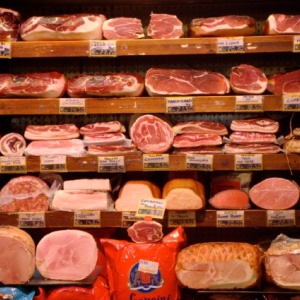
The report investigates consumers’ meat eating patterns, the relationship with BMI, and their willingness to eat less meat or to eat meat that they may perceive to be ‘better’ in some way – eg. organic or free range.
In essence the study finds thatthe more frequently people eat meat, the larger their portion sizes, the higher their BMI, the less likely they are to choose free range or organic meat and less likely to want to eat plant based or non meat substitutes – and vice versa.
A thorough summary of the study’s findings has been undertaken by EUFIC (the European Food Information Council) and can be found here.
Abstract
Adapting Western meat consumption to health and sustainability challenges requires an overall reduction of industrially produced animal proteins plus a partial replacement by plant proteins. Combining insights on food, environment, and consumers, this paper aims to explore change strategies that may help to meet these challenges, such as promoting smaller portions of meat (“less”), smaller portions using meat raised in a more sustainable manner (“less but better”), smaller portions and eating more vegetable protein (“less and more varied”), and meatless meals with or without meat substitutes (“veggie-days”). The underlying logic of the strategies was clarified by analyzing dietary choices. A nationwide sample of 1083 Dutch consumers provided information on current eating practices and potential changes. The results show that strategies to change meat eating frequencies and meat portion sizes will appeal to overlapping but partly different segments of consumers and that these strategies can be applied to address consumers in terms of their own preferences. The strategies appeared to have different strengths and weaknesses, making them complementary pathways to facilitate step-by-step changes in the amounts and the sources of protein consumed.
Citation
De Boer J., Schösler H. & Aiking H. (2014). ‘‘Meatless days’’ or ‘‘less but better’’? Exploring strategies to adapt Western meat consumption to health and sustainability challenges. Appetite. 76: 120-128. DOI: 10.1016/j.appet.2014.02.002
You can access the study here . For more in the Research Library on consumer eating patterns and attitudes see here.







Post a new comment »